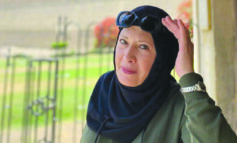Ontario’s Conservative Party leader John Tory has created a storm in the election campaign by raising the issue of provincial funding for private faith-based schools. The Conservatives have come out in favor of such funding, while the governing Liberals are strongly opposed. Ontario’s third party, the socialist New Democrats, are also opposed, but they are not entering into the battle of words on this issue at this point. The election falls on October 10.
Currently, Ontario has two publicly-funded school systems, a public and a Catholic one. (In a couple of smaller communities, the public system is Catholic and the separate one Protestant.) The only important party favoring eliminating public funding of Catholic schools is the Greens, who hold no seats in any of Canada’s legislatures and who tend to get somewhat less than 10% of the vote.
Some other provinces do provide partial funding for faith-based schools, but Quebec and Newfoundland have abolished denominational systems. In spite of that, Quebec offers partial funding for religiously-oriented schools.

|
| Tory |
Liberal Premier Dalton McGuinty is in a tight spot on the issue of faith-based funding. He is a product of the Separate (Catholic) school system, and his wife teaches in it. Yet, he has denounced faith-based schools as divisive, pointing to the advantages of children of all faiths learning to get along together in the same system. He has not proposed to eliminate funding to the Catholic system.
The push for public funding of religious schools comes from a coalition of religious groups, including Christians, Muslims, Jews, Sikhs and Hindus. Tory’s position is an attempt to gain support for his party at the expense of the Liberals, who have typically garnered the votes of Jews and immigrant groups. It could lose him some support among traditionally Conservative rural voters, who may resent the idea of funding non-Christian religious educational systems. On the other hand, those who identify with more Evangelical denominations may be supportive because it opens the door to funding for their schools.
Tory has made something of a slip on the issue. On the one hand, he declared that in order to receive funding the schools would have to follow the Ontario curriculum which includes evolution, but then he said that they could teach creationism. When challenged on the contradiction he backtracked, saying that evolution would have to be taught in science class with creationism relegated to a segment outside the provincial curriculum. He is a member of the United Church, Canada’s largest Protestant denomination, which came into being in 1925 as a merger of Congregational, Methodist, and some Presbyterian churches. Tory states that he believes in evolution.
The importance of evolution in this context is exaggerated. While evolution is taught in Ontario schools, its systematic exposition occurs only in a course at the high school level for the university-bound. In Quebec, by contrast, it is taught in a high school course compulsory for all students. As well, while the current situation is not clear, in the past the Ontario Ministry of Education has quietly allowed Evangelicals to screen proposed textbooks before adoption, eliminating those referring to such “controversial” matters as evolution and the age of the earth.
Interestingly, Tory would open the door to broad funding of religious schools but not others. Thus, while French-English bilingualism is important in Canada, a country with the two official languages, a school such as the non-sectarian Kitchener-Waterloo Bilingual School would not be eligible for funding.
In any case, Muslim schools would be likely winners under the Conservative program.





Leave a Reply